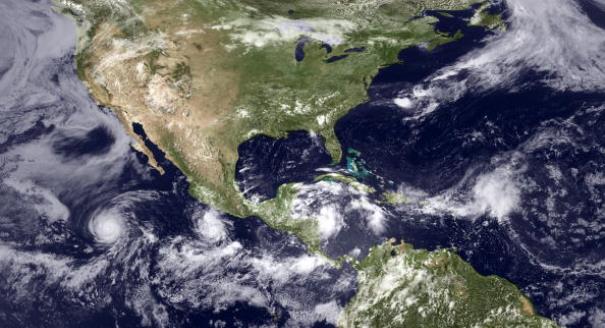Summer is here! Even usually overcast Brussels is enjoying clear blue skies, 28°C (82°F), and a gentle breeze, as well as a pretty inner-city artificial beach alongside a canal. So perhaps now is the perfect time for the foreign policy analyst to ask: What if I’ve got it all wrong?
For several years, the working assumption for those interested in EU foreign policy has been quite simple. Europe relies for its freedom, stability, and prosperity on a liberal world order that it is unable to assure on its own. The chief guarantor of that global order, the United States, is becoming relatively weaker, and is less inclined to provide security services for free to her allies in Europe.
With the international order getting messier, Europe will be forced to deliver more if it wants to protect its interests, support its values, and remain relevant as a transatlantic partner. As a consequence, Europe needs a more unified foreign policy, improved strategic thinking, and better civilian and military assets to play a role in the world.
But what if this is all wrong? The counterscenario is easy to construct. In this setup, the United States would not only remain a great power, but would solidify its status as the sole superpower on Earth. Several factors would have to come together to bring about such an outcome.
First, the North American shale gas revolution would reduce energy costs and lead to a huge reindustrialization of the United States, as many experts predict now. America’s tax revenue would skyrocket and its deficit would shrink. The United States would invest in infrastructure, research, and the military, creating solid growth rates for a long period of time.
Second, America’s basic power calculation would not change. The United States would not give in to isolationist temptations, but would remain politically and militarily present around the globe, from Europe to the Middle East to Central Asia to the Pacific. America’s born-again economy would profit greatly from ever-more-globalized markets and supply chains, and the superpower would decide that it is better to stay in charge of ensuring the planet’s stability than to ask others for help.
Third, with China openly admitting that it has benefited considerably over the last thirty years from Pax Americana, Beijing’s ambitions to become a rival superpower would remain limited to its immediate neighborhood. China’s leaders would find international crisis management much too tedious, costly, and distracting from domestic affairs to really challenge U.S. leadership around the world. The Chinese would actually be quite happy with the way Washington keeps markets open and conflict at bay from North Korea to the Middle East.
With Brazil too weak, Russia eaten up by domestic decay, and India focused on regional rivalries, the BRICS revolution would be over before it began. Classic, 1990s-style unipolarity would not return, but it would still be a case of American dominance. Certainly, full-blown multipolarity would not emerge anytime soon.
Fourth, the Transatlantic Trade and Investment Partnership and the Transpacific Partnership would create two new pillars for the Pax Americana. That would make the United States once more the country toward which others must pivot, instead of vice versa. In combination with existing alliances such as NATO, a broad network of reliable bilateral security partnerships, and some slightly tiresome but still partly functioning forums such as the G20, IMF, and World Trade Organization, the United States would remain the crucial arbiter of international affairs.
In such a world, Americans would much rather continue subsidizing European security than actually delegate such an important task to the Europeans themselves. All of us preachers of “Strategic Europe” would look silly and detached with our repetitive pleas for more European capabilities and awareness.
Complacent Europe would win out because it instinctively got the whole story right: America will never leave us. Americans would continue doing the tough stuff so Europeans can focus on the things they are actually good at: internal affairs and issuing tough-worded statements on the dictator of the day.
Is this the best that Europeans can hope for?
Maybe. It would certainly be good for Europe if the West’s leading power retained its strength and preeminence in the world. But that would not solve all problems. It would not make Europeans any more influential or relevant than they are now—quite on the contrary. Europe’s political shrinking would continue as the continent’s decline would be not just relative but absolute.
With America rejuvenated and the emerging powers growing, albeit with reduced political ambitions, a Europe that clings to the good old days would fall between the cracks. Europeans would no longer be a source of major worries. But they would be relegated to total passivity in international deal-making.
The real lesson from the counterscenario is this: whether Europe can continue free riding on American security services or not, if Europeans want to matter in the world they must get their act together. If Europe doesn’t become a strategic player now, it will decline—even if the rest of the planet turns into paradise.
This is the truly sobering answer to the “what if” question. Even if our working assumption is wrong, our conclusion is still right. Isn’t that great? Enjoy the sun while it’s shining!






.jpg)